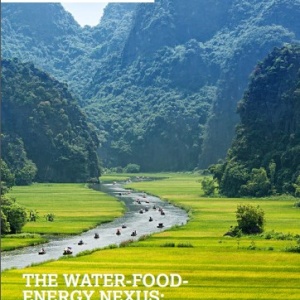This report, jointly published by WWF and brewing company SABMiller discusses the way we govern water, food and energy resources. Changing consumption patterns and demographic pressures are increasing the risk of resource scarcity and managing these risks and building the resilience of our water, food and energy systems are described as an essential but neglected part of development.
Nexus policymaking is about designing resilient government or business strategies in ways that take account of the connections between food, water and energy systems. This report looks at 16 countries or states, comparing the ways in which their development patterns have managed their different mixes of resources and different capacities to make use of those resources.
The report concludes that the most resilient economic systems combine robust infrastructure, flexible institutions and functioning natural capital. The case studies propose areas in which policymakers have particular levers for responding to nexus challenges in order to bring about resilience.
The report recommends that policymakers should:
• Integrate all aspects of development planning, in particular ensuring that water, energy and agricultural sector planning are not done in isolation, but consider how each can contribute to the resilience of the others;
• Design institutions for resilience, in ways that strengthen cooperation and coordinated decision-making;
• Use economic and regulatory instruments to strengthen the incentives and requirements for building resilience into water, food and energy systems;
• Use trade, regional integration and foreign policy to manage nexus trade-offs more effectively, and contribute further to resilience at both country and global levels.
Citation
WWF & SABMiller, 2014, The water-food-energy nexus – Insights into resilient development
The full report can be accessed here.
There is also coverage of the report in the Guardian here.
For more resources and events relating to the water energy food nexus, see here. Read more about resilience here.








Post a new comment »